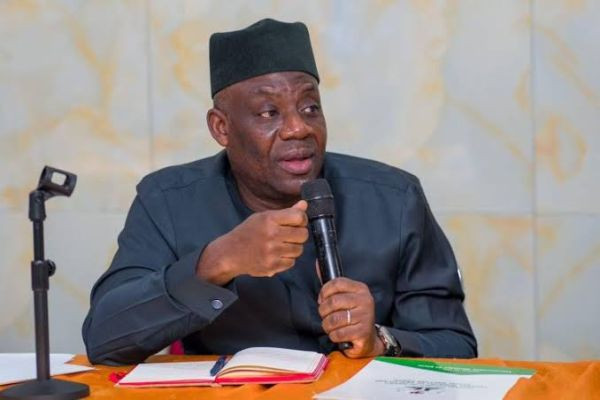ABUJA — The Federal Government has announced a comprehensive reform of the procurement process across Nigeria’s tertiary education system, empowering universities, polytechnics, and colleges of education to handle projects worth up to ₦10 billion at the institutional level.
Minister of Education, Dr. Tunji Alausa, disclosed this on Tuesday in Abuja during a joint meeting with the Bureau of Public Procurement (BPP), heads of tertiary institutions, bursars, procurement directors, and leaders of key education agencies.
He said the reforms are part of the government’s broader strategy to promote transparency, efficiency, and digital access in public education, in line with President Bola Tinubu’s Renewed Hope Agenda for Education.
“We cannot continue to operate in silos or allow wasteful spending when technology can bring efficiency, transparency, and connectivity to our institutions,” Alausa said.
“From 2026, every federal tertiary institution in Nigeria will be subscribed to the Nigerian Research and Education Network (NG-REN) using a coordinated funding mechanism through TETFund. No institution will be left behind.”
New Procurement Guideline for Tertiary Institutions
Alausa unveiled a new Procurement Guideline for Tertiary Institutions, developed in collaboration with the BPP and the Infrastructure Concession Regulatory Commission (ICRC), to streamline processes and ensure accountability in project execution.
“For the first time, we now have a single procurement document tailored to the peculiarities of the education sector,” he explained.
“Procurements up to ₦10 billion will now be handled at the institutional level, while projects above that threshold will require approval from the Ministerial Project Approval Board.”
The minister commended the Director-General of the BPP for supporting digital-driven transparency, saying the reform would make governance “faster, simpler, and cleaner.”
Broadband Connectivity and Digital Integration
Alausa emphasized that the ministry has identified power and internet connectivity as major challenges hindering learning and research in Nigerian campuses. He reaffirmed the government’s commitment to strengthening NG-REN, a broadband platform interconnecting universities, polytechnics, colleges, and research centers nationwide.
“The NG-REN is not just about providing internet; it’s about linking all our institutions together to share knowledge, research data, and innovation seamlessly,” the minister said.
He revealed that the government, through TETFund, is collaborating with the National Universities Commission (NUC) and other partners to integrate NG-REN with the Tertiary Education Research and Applications System (T-ERAS) — a digital platform automating TETFund interventions, subscriptions, and monitoring.
Alausa added that the ministry has obtained a single ICT project clearance from the National Information Technology Development Agency (NITDA) for 2025, a move aimed at harmonizing ICT procurement across all tertiary institutions.
“With T-ERAS, institutions can process interventions, track projects, and access information directly from their mobile phones,” he said. “This enhances transparency, reduces bureaucratic delays, and ensures better accountability in how public funds are used.”
Partnership and Infrastructure Expansion
The minister directed TETFund and NG-REN management to collaborate with private tertiary institutions so that the benefits of the national education network extend beyond public universities.
He also announced plans to partner with the Ministry of Communications, the World Bank, and NITDA to expand fiber-optic infrastructure across campuses nationwide.
“The government is providing an end-to-end digital backbone for our education sector. Institutions without fiber connectivity should liaise with the relevant agencies immediately to be part of this transformative journey,” Alausa urged.
He concluded by calling on stakeholders to view investment in education not as expenditure but as the foundation for national development, adding that the reforms would modernize governance and deliver better learning outcomes for Nigerian youth.
follow us on whatsapp
https://whatsapp.com/channel/0029VaAOIUe9mrGeBhrju12b
Download our Mobile App for easy access
https://play.google.com/store/apps/details?id=com.edutvmobile.ng&hl=en
Mobile App Lite
https://play.google.com/store/apps/details?id=com.edutvng.lite
https://play.google.com/store/apps/details?id=com.edutvmobile.ng&hl=en
Follow us on Youtube
https://youtube.com/@edutvnigeria
Follow us on LinkedIn -
https://ng.linkedin.com/company/edutvnigeria
Follow us on Instagram
https://instagram.com/edutvnigeria
Follow us on Facebook
https://www.facebook.com/edutvnigeria/









